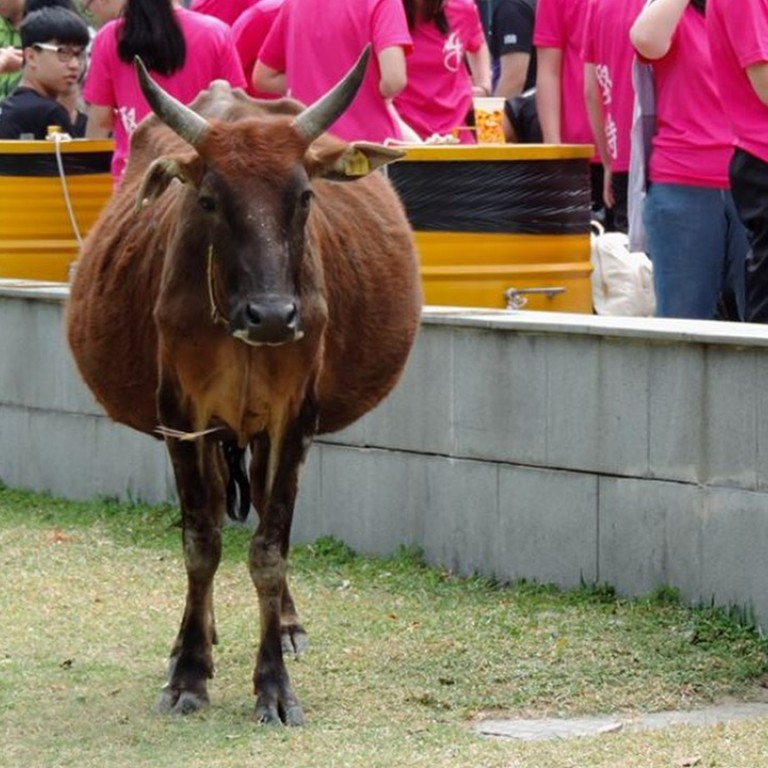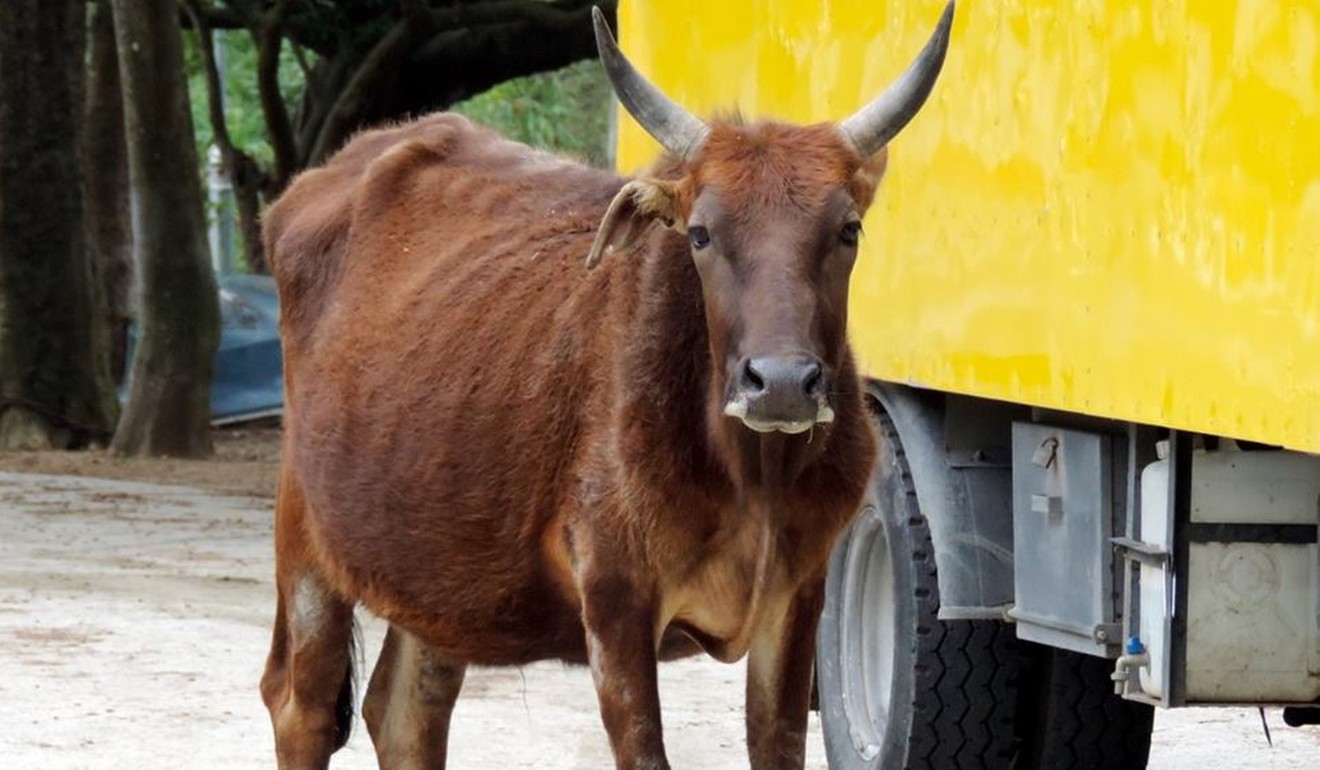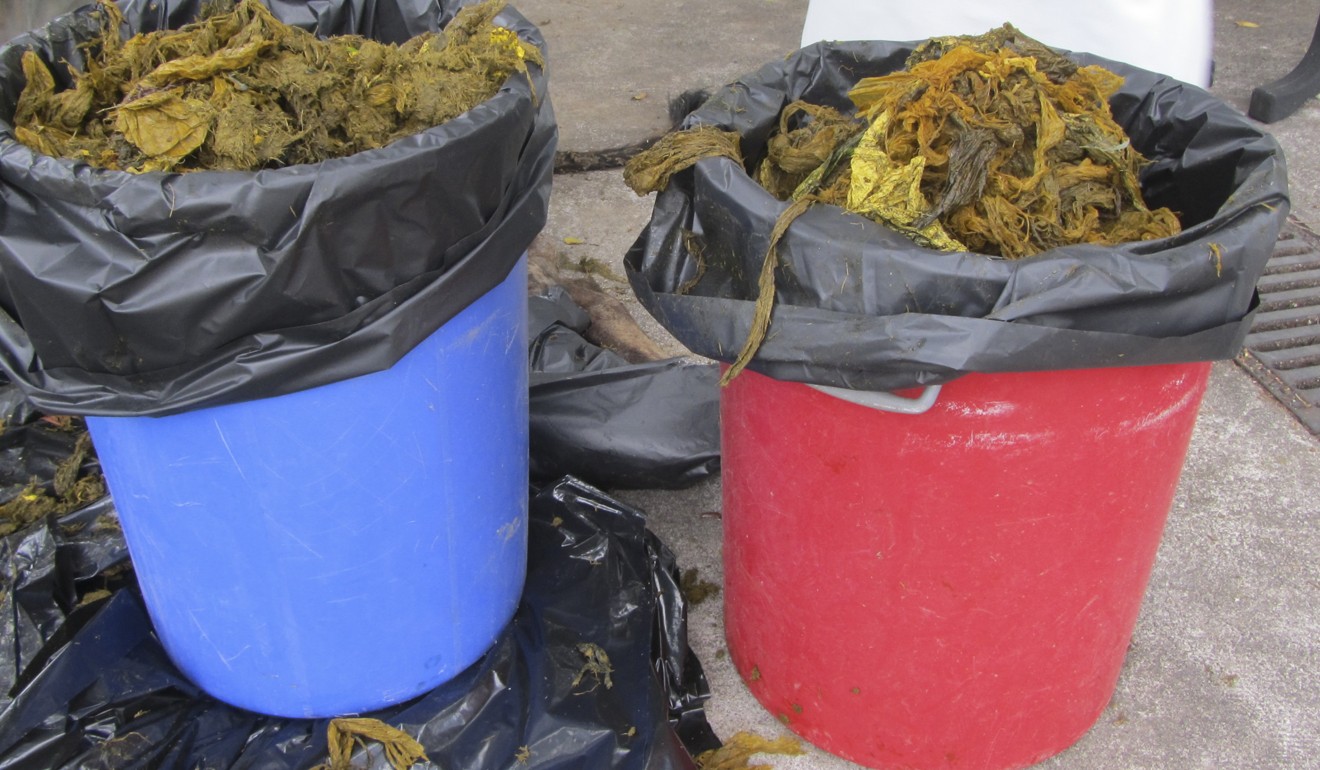
Beloved Hong Kong bull Billy found dead with stomach full of plastic bags, prompting call for beachgoers to take their trash home
- Bovine’s stomach and intestinal tract blocked with enough bags to fill two rubbish bins
- Officials say being fed by visitors led Billy to associate plastic bags with food
Hong Kong beachgoers have been urged to take their trash home, after one of the city’s most beloved bovines was found dead with a stomach full of plastic.
Billy, an eight-year-old bull who lived on Pui O beach on the south of Lantau Island, was found dead on Friday, according a post on its Facebook fan page.
An examination showed that the animal’s stomach and intestinal tract had been blocked with enough plastic bags to fill two rubbish bins, the Agriculture, Fisheries and Conservation Department said on Monday evening.
“I believe this tragedy happened partly because people were leaving behind their trash after going to the beach or to the countryside,” Greenpeace campaigner Chan Hall-sion said.
She added that beaches were high-risk areas as single-use plastics thrown into bins could easily be blown back out into the surrounding area.
“Don’t think that you’ve already done your part by throwing rubbish into the bin,” Chan said.
The fan page, titled Billy “the Pui O legendary cow” – although Billy was male – said the bovine had been attacked by dogs when it was only a few months old. It became used to humans after being nursed back to health by vets and Lantau residents and later joined a buffalo herd on the beach.
In recent years, its friendly encounters with tourists who frequented the beach and the neighbouring campsite meant it ended up eating their leftovers. It also got into the habit of being fed by visitors.
“This led to a change in its habits for finding food … and made it correlate plastic bags with food,” the AFCD statement said.
We are extremely sad that it’s gone. Billy taught us a lot
Lantau Buffalo Association chairwoman Ho Loy, who had helped raise Billy over the years, said Lantau residents were “greatly saddened” by the news.
"We are extremely sad that it’s gone. Billy taught us a lot," she said.
Ho said Billy was described as legendary because it had joined an entirely different species on its own at a young age and at one point learned from the buffaloes how to swim.
“Billy also helped change the way people thought about cattle. Some Lantau residents used to think that they were dangerous and aggressive, but Billy helped them change that perception with his friendly demeanour,” she said.
She criticised the government for the red tape preventing groups from putting up banners to educate the public about not feeding wild animals. The government had put up one banner, she said, but it was badly designed and most people ignored it.
“They just regulate for the sake of regulating, they don't think if what they’re doing is effective or not. How many people would actually be willing to spend money on making banners to help save cattle?”

Chan said it was important to curb the use of single-use plastics at the source.
“For visitors who are going to beaches or the countryside, planning ahead and bringing reusable cutlery and boxes can already help,” she said.
She also encouraged restaurants and kiosks at beaches to take the lead in handing out less throwaway plastic.
Since July, the government has run a “Plastic Free Beach, Tableware First” campaign, with at least 47 kiosks and restaurants operating at the city’s public beaches pledging to avoid distributing plastic straws and disposable plastic tableware.
Plastic debris account for between 60 and 80 per cent of marine litter found along shorelines, according to a survey of 34 coastal sites by WWF-Hong Kong in 2015 and 2016. Most of them were single-use disposable items such as polystyrene fragments and plastic packaging.
About 154 tonnes of disposable plastic tableware – about 2 per cent of all municipal waste – went into the city’s overflowing landfills in 2016. Plastic, in general, accounts for roughly a fifth of the city’s daily municipal waste generation.

In a separate statement in response to media inquiries, the AFCD said that autopsy results showed that Billy’s cause of death was likely due to plastic bags blocking its digestive system. He was unable to eat and digest food normally.
The AFCD added that it had implemented a number of measures to reduce the chances of cattle getting close to humans and rummaging through trash.
One of the schemes include stationing staff members around southern Lantau to herd cattle away from “black spots” where they were known to approach visitors.
It urged visitors to keep a distance from cattle and not to feed them human food.

